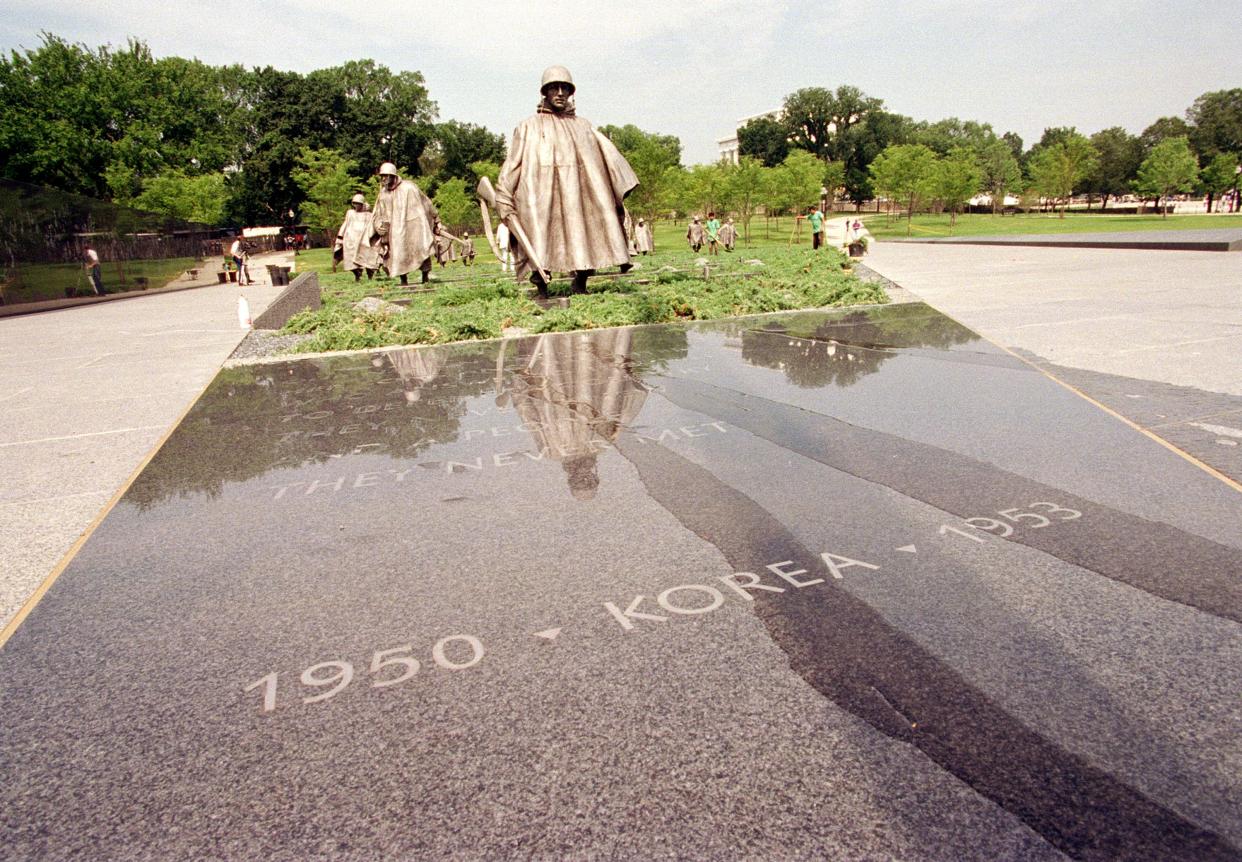Guest: The Korean War Memorial has become 'the forgotten memorial'

Leaning against the cool metal railing, National Park Service ranger New Thanyachareonspoke with passion when talking about the Korean War Veterans Memorial. Despite 27 years of experience under his belt, Thanyachareon still considers the tribute one of his favorite places of remembrance in the Washington, D.C., area.
Yet, in spite of being a public attraction for nearly three decades and attracting an estimated 4 million tourists per year (per the National Park Service), Thanyachareon and others are still concerned about the seeming lack of interest the general American public has on the conflict, even 70 years after the fate of the peninsula was decided.
“The memorial actually to me has become the forgotten memorial,” Thanyachareon said. “The moniker of the forgotten war became the forgotten memorial, as well.”
For the soldiers, fighting from 1950 to 1953, the battles they fought were far from forgettable. The fifth-deadliest war in American history, the United States backed South Korea in an attempt to fight Communist ideals.
In the end, after nearly 37,000 U.S. troop deaths, the response back home was one of reluctance and confusion.
“A lot of people come here,” Thanyachareon said as he glanced up at the Korean War information sign. “[World War II and the Vietnam War] were over-sensationalized … so when [the visitors] realize that the memorial isn’t the Vietnam Wall, they turn away.”
The Korean War, at least for the majority of the U.S. public, had fallen into a midst of obscurity.
But for Koreans and Korean-Americans alike, the influence and impact that the struggle had is far from a trifle, meaningless moment in their respective culture and history.
“Almost every Korean family has sad memories and histories related to the Korean War,” said Hwahyun Lee, Oklahoma State University Korean language professor. “If the U.S. Army with UN soldiers didn’t come to Korea right away … Korea would not be the same as right now.”
This shared sense of gratitude is more evident than ever today, especially in comparison to South Korea’s economic and political differences to its northern counterpart.
The memorial, with its fresh grass and statues of lifelike soldiers in battle, evoked multiple reactions from a variety of people. While most visitors took pictures of the scene in front of them, others sat in reflection, tracing their hands along the new granite wall of honor.
Isolated away from the traffic and the honking horns, the Korean War Veterans Memorial serves as a tribute to the servicemen who fought in the so-called “Forgotten War.” But in truth, the sacrifices made by the United States decades ago have not been abandoned. Rather, the opposite has transpired for Koreans. The support and help from the Korean War since has inspired South Korea to go beyond their own capabilities and provide assistance to war-torn, disaster-stricken nations that are in a situation similar to what South Korea faced before.
“Think about the young American soldiers who didn’t even know where Korea was that came to help people … because of humanity,” Lee said. “That’s why Koreans now are trying to go and help countries wherever needed, just like America did for us.”
Ranger Thanyachareon had a more sentimental outlook on the war’s remembrance.
Alex Seojoon Kim is a high school sophomore in Stillwater. This article first was published in Medium as part of the Asian American Journalism Association's national multicultural journalism program for high school students.
This article originally appeared on Oklahoman: The Korean War Memorial has become 'the forgotten memorial'

